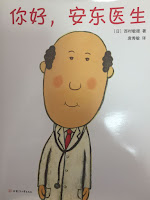Making New Friends at Jiaoda Village 1

David Xuxu and Lotus (Furong) Since COVID-19 is under control in Xi’an and the weather has gotten nice, many people are out exercising and socializing in our little community or Village 1 of Jiaoda University. Grandparents often sit outside chatting, exercising on the exercise equipment and watching their grandchildren play. I got to know a very friendly, cute girl, 6 years old, named Tutu. She and her friends would often shout “Hello" when they saw me. One day I made them some paper airplanes and they just loved them. I soon met Tutu's mother, Furong or Lotus. In addition, I met Lotus’s mother, grandmother, husband and her little daughter, Xuxu who is one and a half. We have become great friends! Tutu Xuxu and Tutu Lotus is a charming preschool teacher and loves to practice English and help me with my Mandarin. We have had fun sitting in front of her building exchanging language and culture. She, Tutu and I read a Chine

